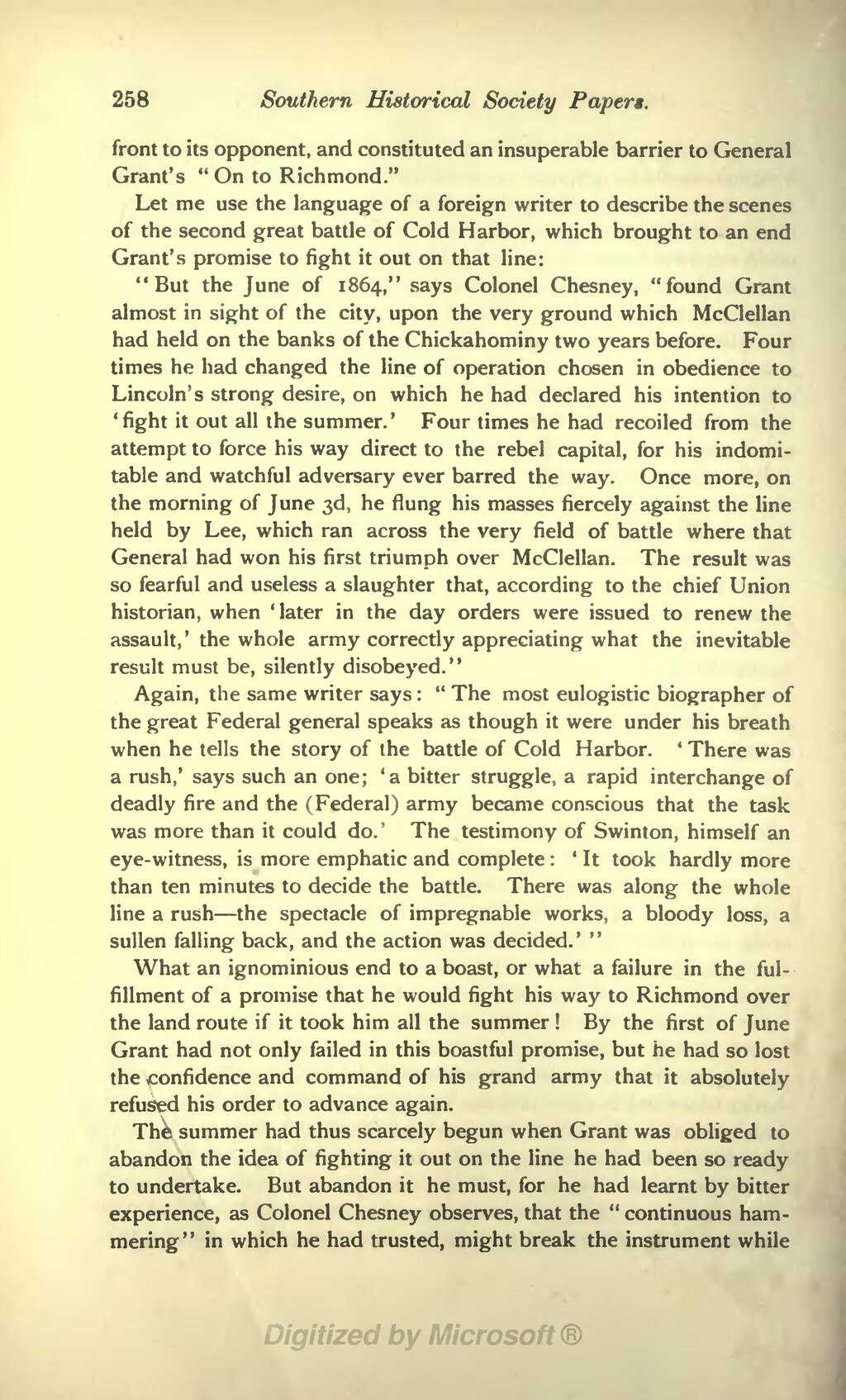258 Southern Historical Society Papers.
front to its opponent, and constituted an insuperable barrier to General Grant's " On to Richmond."
Let me use the language of a foreign writer to describe the scenes of the second great battle of Cold Harbor, which brought to an end Grant's promise to fight it out on that line:
"But the June of 1864," says Colonel Chesney, "found Grant almost in sight of the city, upon the very ground which McClellan had held on the banks of the Chickahominy two years before. Four times he had changed the line of operation chosen in obedience to Lincoln's strong desire, on which he had declared his intention to 'fight it out all the summer.' Four times he had recoiled from the attempt to force his way direct to the rebel capital, for his indomi- table and watchful adversary ever barred the way. Once more, on the morning of June 3d, he flung his masses fiercely against the line held by Lee, which ran across the very field of battle where that General had won his first triumph over McClellan. The result was so fearful and useless a slaughter that, according to the chief Union historian, when 'later in the day orders were issued to renew the assault,' the whole army correctly appreciating what the inevitable result must be, silently disobeyed."
Again, the same writer says : " The most eulogistic biographer of the great Federal general speaks as though it were under his breath when he tells the story of the battle of Cold Harbor. ' There was a rush,' says such an one; 'a bitter struggle, a rapid interchange of deadly fire and the (Federal) army became conscious that the task was more than it could do.' The testimony of Swinton, himself an eye-witness, is more emphatic and complete : ' It took hardly more than ten minutes to decide the battle. There was along the whole line a rush the spectacle of impregnable works, a bloody loss, a sullen falling back, and the action was decided.' '
What an ignominious end to a boast, or what a failure in the ful- fillment of a promise that he would fight his way to Richmond over the land route if it took him all the summer ! By the first of June Grant had not only failed in this boastful promise, but he had so lost the confidence and command of his grand army that it absolutely refused his order to advance again.
The, summer had thus scarcely begun when Grant was obliged to abandon the idea of fighting it out on the line he had been so ready to undertake. But abandon it he must, for he had learnt by bitter experience, as Colonel Chesney observes, that the " continuous ham- mering" in which he had trusted, might break the instrument while
